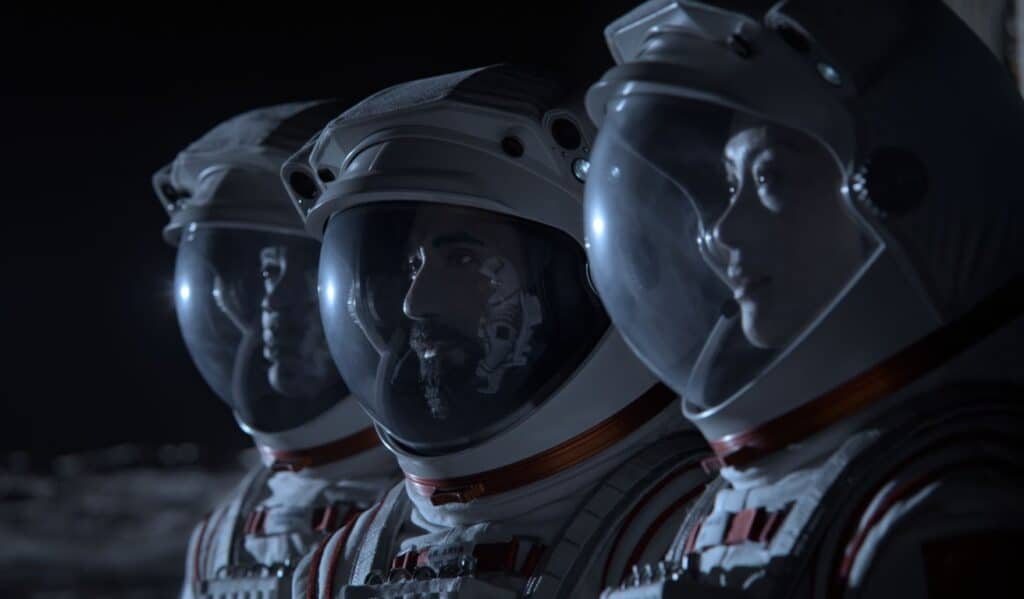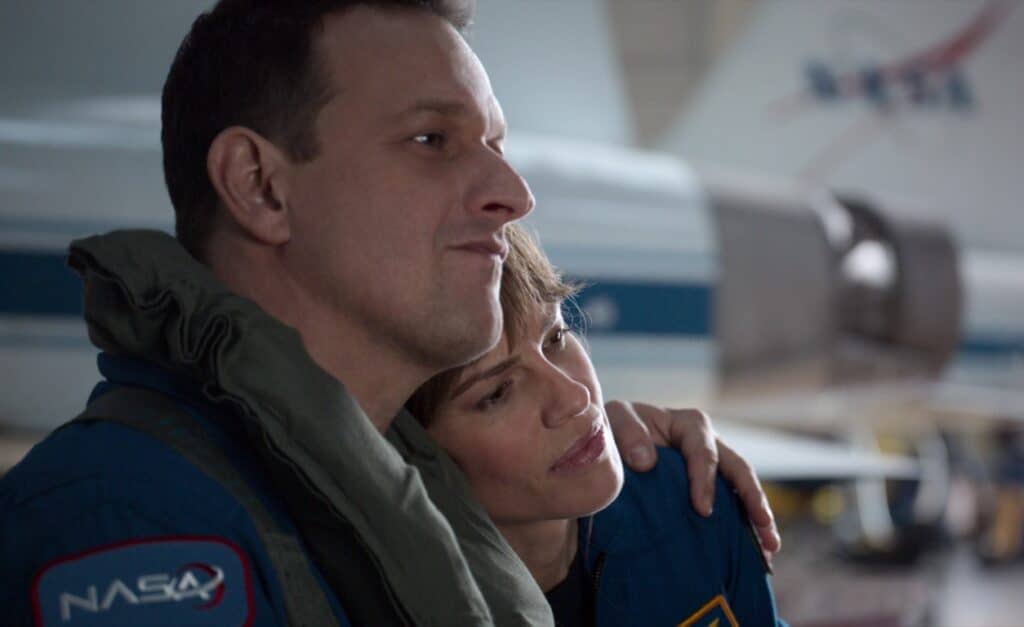Read also:
How to Watch FX Live Without CableHow To Watch AMC Without CableHow to Watch ABC Without CableHow to Watch Paramount Network Without CableA treacly Lost pastiche about astronauts and the lives left behind on an interstellar mission gives way to surprisingly humanistic highs.
In a future close enough to now that everything looks the same, an international coalition stands ready to send a team of astronauts to Mars. Netflix’s latest prestige sci-fi drama Away, created by Andrew Hinderaker, largely unfolds as that journey has reached its apex — the manned mission — but makes it clear this is an effort over 15 years in the making. The team features representatives from five countries: the commander, Emma Green (Hilary Swank), represents America. Her husband, Matt (Josh Charles), a former astronaut himself, has been kept off the team because of a genetic disorder and instead supports the mission as NASA’s top engineer in Mission Control.
The team boasts four other members from four different countries: Ram (Ray Panthaki), the mission’s pilot and second-in-command, comes from India. China, given the honor of having their representative as the first to walk on Mars, has sent Lu (Vivian Wu), a gifted chemist and longtime Mars enthusiast. Misha (Mark Ivanir), the Russian cosmonaut, has spent more time in space than any other living person and at nearly 60 seems to be reaching the end of his career. Finally, Kwesi (Ato Essandoh), the British raised botanist, is the crew’s rookie, the only member who has never been to space.
Boasting events and themes that recall Apollo 13, The Martian, Ad Astra, and even a little bit of Rashomon early on, director Ed Zwick gives Away a sense of familiarity out of the gate. (Its basic plot structure even echoes Hulu’s abortive space-age drama The First.) By this point, we have all seen at least one piece of media — be it fictional, dramatization, or documentary — that revolves around missions to space where things don’t go as planned. Most will also be familiar with the mix of low and high stakes political jockeying that takes place both on the ground and in the air, involving everything in Mission Control, what romantic relationships can be acknowledged, and how the first photographer took on the red planet — if they ever get there.

However, as Away pushes deeper in the firmament and beyond, it takes shape, defining itself uniquely in the sci-fi mystery/drama genre. While the show loves its puzzles and delights in putting the crew in one predicament after another, it has a far deeper interest in the psychology of its protagonists.
Because of this emphasis, the piece of media that Away most recalls is Lost. No, there isn’t a smoke monster in sight, and you won’t have to worry about if something is or is not Penny’s boat. But Away adheres closely to Lost‘s philosophy that a person’s past is the author of their present.
Structurally, for better and worse, Away resembles Lost as well. The majority of the season’s ten episodes are framed by flashback sequences focused around a specific character. And, like Lost, these flashbacks offer truths and blind alleys that can be confirmed or redefined by the character’s next spotlight episode. That all works very well.
A less effective stylistic crib from Lost are the magic-hour montages that conclude each episode, giving the last three or so minutes over to bittersweet check-ins with our cast set to thematically appropriate needle drops. For a 22-episode season airing over about nine months, these palate cleanser reset/summaries were an effective tool. For a ten-episode season most will watch over the course of a few days, it undermines the show’s otherwise strong sense of dramatic tension. By episode four, you know if you just reach the music cue, everything is going to be ok.
While the show loves its puzzles and delights in putting the crew in one predicament after another, it has a far deeper interest in the psychology of its protagonists.
Nonetheless, this is a minor complaint. Even if we know that music is a kind of television zone of protection, the characters do not.
With a few minor exceptions, the entire cast gives strong performances. Ivanir’s cosmonaut is embittered, heartbroken, silly, and fiercely intelligent in equal measure, a man both broken and held together by his experiences in space. In a top-notch cast, he still makes you perk up and take notice every time he’s on-screen.
Wu’s Lu comes in a close second, portraying a character that initially feels a little too close to a racial/ethnic stereotype of emotional coldness. As Wu reveals more and more with a line reading or brief physical gesture, the character’s complexity starts to come into relief. The revelations of her flashbacks further contextualize her status as a buffer against a life that offers her hope and snatches it away with terrible consistency.

In what feels like a brutal time where optimism is in short supply, there’s something undeniably appealing about Away. It isn’t naïve, per se. As noted, there is plenty of political maneuvering, much of it petty and disheartening. But the show’s inclusiveness is a boon to the soul. It gives us prominent physical and cognitively disabled characters, characters of different races, ethnicities, and religions, queer characters, characters who long for loves they can’t have. And it does it all in a way that never feels judgmental or dismissive. Away presents a world not free of strife or difficulty (the show heavily references Earth’s steadily-growing lack of habitability) but one where at least some hope of collaboration can be found.
Visually, Away‘s cinematographers (David Boyd, Brian Pearson, and Tim Burton — no, not that one) offer striking interstellar aesthetics, even if they’re a bit generic at times. That said, the show does one interesting thing that it takes a while to notice: As the crew journeys deeper into space, the palette grows darker and deeper both on Earth and in the spacecraft. By episode eight, the cinematography is dominated by deep blues and blacks. It’s an interesting and effective choice, but one that demands you not watch the latter half of the season on your phone or laptop.
Without telling you how it all ends up, Away offers a strange sort of comfort food for the moment. There’s tragedy and setbacks, and not everything works out. But running throughout the danger is a sense of competence, a feeling of everyone trying to do their best, that one can’t help but hunger for right now.
Away is currently streaming on Netflix.